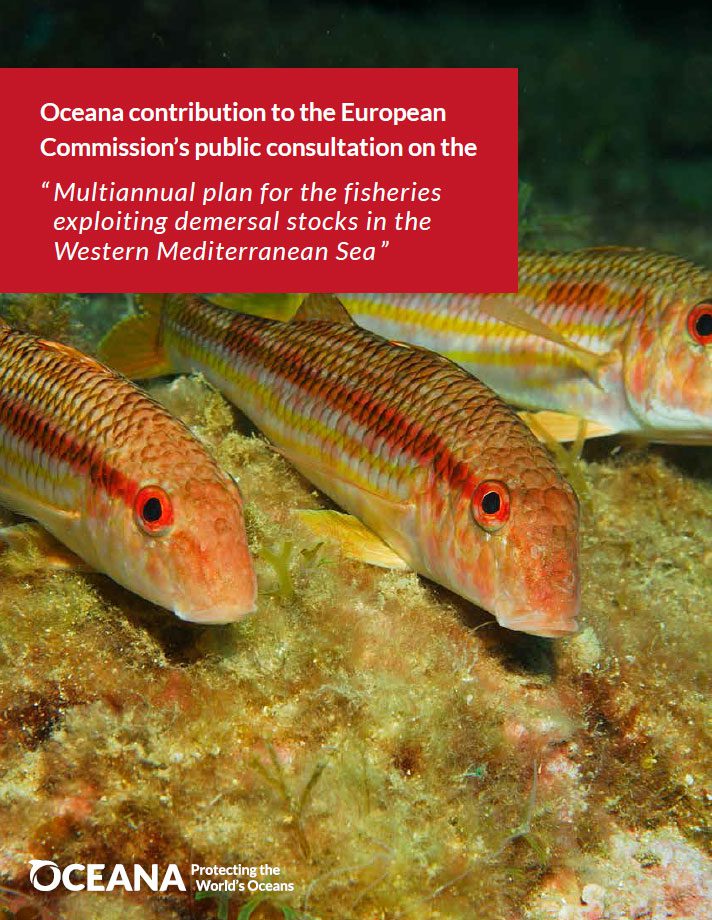Report | October 21, 2016
OCEANA contribution to the European Commission’s public consultation on the “Multiannual plan for the fisheries exploiting demersal stocks in the Western Mediterranean Sea”
Overfishing in the Mediterranean Sea is most commonly believed to have begun around the ‘70s (Quetglas et al., 2013; Tsikliras et al., 2013), when fishing efforts increased considerably due to technological developments that allowed fleets to displace themselves at a greater distance from the coast, fish at greater depths, explore new fishing grounds and thus increase yields. However, when estimated unreported catches are factored in (Coll et al., 2014), it turns out that overfishing disturbingly started as early as in the 50’s or 60’s.
The latest assessments of Mediterranean fish stocks revealed that 96%3 of stocks fished exclusively by EU countries are overexploited above levels that are considered sustainable (i.e Maximum Sustainable Yield, MSY4). Moreover, it has been estimated (Osio et al., 2015) that 98% of the yet-to-be assessed demersal stocks could also be overfished.
Recently, the European scientific community (STECF, 2015a) warned that the severe overexploited state of Western Mediterranean stocks poses a high risk of their biological collapse. The study also highlights that the current overexploitation of Mediterranean stocks is undermining the potential yield of fisheries. Therefore scientists have recommended undertaking management actions to reverse this situation with no further delay.
The alarming state of Mediterranean fish stocks is the result of decades of mismanagement, misreporting, and illegal fishing. Decision-makers have repeatedly ignored scientific advice, failed to implement existing measures, and failed to set adequate control measures for those that were implemented.
The National Management Plans (NMPs) adopted so far – under article 19 of the Mediterranean Regulation5 – have failed to set clear management objectives to halt overfishing and are reported to have been insufficiently effective to meet the CFP obligations to recover stocks at sustainable levels by 2015, or 2020 at the very latest. Therefore, the need is now urgent to establish new effective MAPs to address the depletion of Mediterranean fish stocks.
In line with the CFP principles6 and scientific advice (STECF, 2015a), MAPs have been identified as the most suitable measure to address overfishing.



